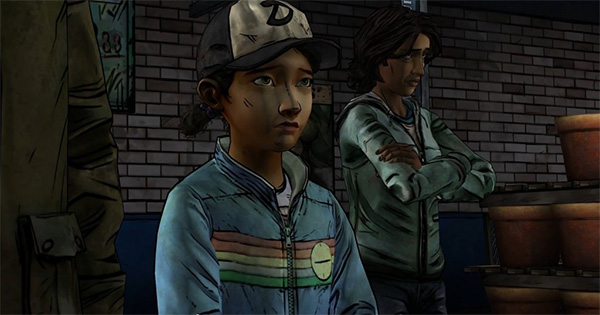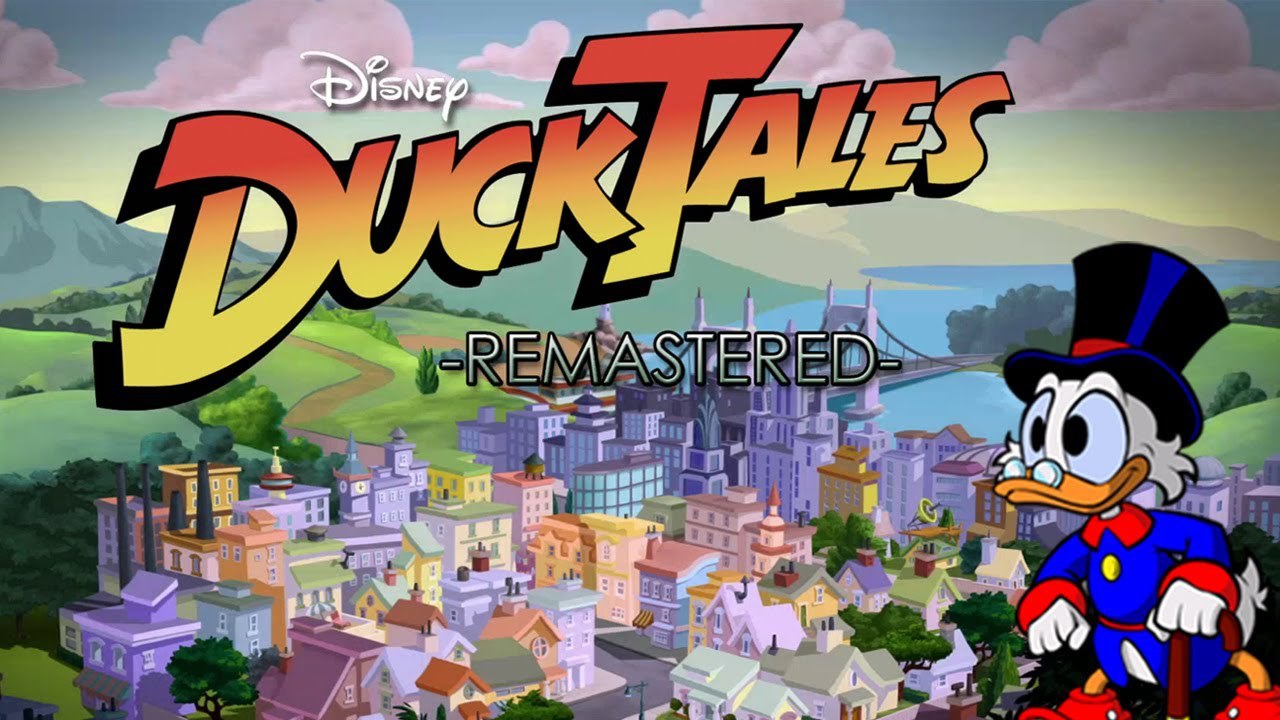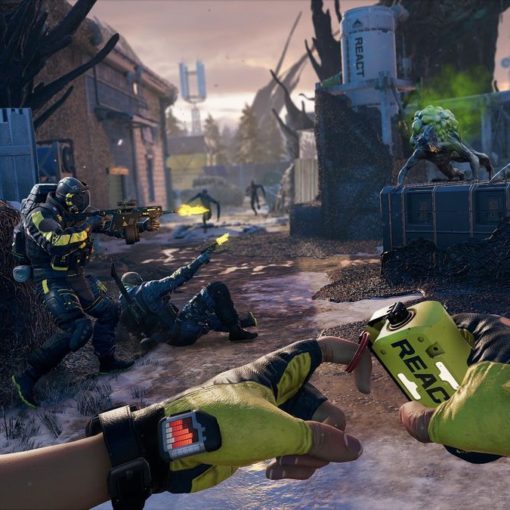In her book Reality is Broken: Why Games Make Us Better and How They Can Change the World, Jane McGonigal argues that people are playing more and more games because they provide a welcome change from reality. Games are more engaging, more fun, and even in many ways more sociable than our day-to-day experiences. (This last point is especially true, due in part to services like Xbox Live and, for PC gamers, MMOs, that thrive on creating social connections via online play.) McGonigal’s overall argument is that we should make life more like a game, so that we can tap in to these elements of game-based work and play that are so motivating to the gamer population. Life, she argues, should be more like a game.
I agree with a lot of what McGonigal preaches (although to be honest I’m not always on board with her over-enthusiastic evangelism about it). However, where her argument begins to fall apart for me is the general idea that games are somehow separate from life, that they aren’t already an integral part of the human experience. From board games to card games, puzzles to video games, war games to political games, games have always been a part of humanity. So this idea that life has to become more like a game breaks down a bit for me when I realize that life is, in many ways, a game itself.
Even if you think of games as separate from human experience, they provide elements of human culture that are nearly impossible to find anywhere else. Yes, games are immersive and engaging and fun and in many ways can serve as an escape from our everyday lives. But they also teach and demonstrate and help us imagine, dream, create, explore, connect, and communicate with each other in ways that are impossible in day-to-day life. So how, exactly, are we supposed to make life more like a game when the best parts about games is that they aren’t real life?
 But, anyway. I was thinking about all of this the other day while watching the Olympic snowboarding events. Truth be told, I was bored, horribly bored, like want to poke my eyes out bored… and I realized that it was because what I was watching wasn’t immersive enough or exciting enough. I wanted to see tricks and spins and flips and speed… Oh, please, more speed. But more than that, I actually wanted to snowboard. I wanted to do tricks and spin 360s. I wanted to race and prove myself down that steep mountain slope. And then it hit me… What I really wanted was to play SSX. See, the SSX series – the snowboarding game series that was first released back in 2000, with the most recent having come out in 2012 – ruined reality for me. This digital idea I had in my head that a snowboarder could just spin and flip and rail and boost and pipe and race down a hill at a mind-blowing speed was entirely from video games.
But, anyway. I was thinking about all of this the other day while watching the Olympic snowboarding events. Truth be told, I was bored, horribly bored, like want to poke my eyes out bored… and I realized that it was because what I was watching wasn’t immersive enough or exciting enough. I wanted to see tricks and spins and flips and speed… Oh, please, more speed. But more than that, I actually wanted to snowboard. I wanted to do tricks and spin 360s. I wanted to race and prove myself down that steep mountain slope. And then it hit me… What I really wanted was to play SSX. See, the SSX series – the snowboarding game series that was first released back in 2000, with the most recent having come out in 2012 – ruined reality for me. This digital idea I had in my head that a snowboarder could just spin and flip and rail and boost and pipe and race down a hill at a mind-blowing speed was entirely from video games.
In other words, video games ruined the Olympics.
 Sure, I watched some downhill skiing and some snowboarding, even a bit of bobsledding and hockey. But overall, I found it to be anti-climactic and a bit slow. I wanted action, I wanted speed… what I really wanted was immersion. I wanted to experience the downhill action, the thrill of the race. And then I began to fantasize about something. What if McGonigal is right: What if we need to start making life more like a game? What if what’s missing from life is the excitement and immersion that we feel while playing games? If that’s so – and she does have a point – what if we made the Olympics more of an interactive game? What if a developer created a play along at home game where you could play as one of the Olympic athletes, or root on a particular team, or – I don’t know – even do something fancy like watch the Olympics split-screen while you’re racing down the hill right next to them. Or, the game could be a cleverly implemented play-along-at-home experience, like a card game or trading game (such as Alex’s new obsession). And let’s not stop there. Can you imagine if we could come up with other games that we could play along with while watching certain events on TV? A game about giving speeches or acting, while watching the Oscars? A game that lets you play Guitar Hero along with the Grammys? OK, I’m getting a bit off topic here. But my point is that when I first read McGonigal’s work I was enthusiastic, and then a bit skeptical. But now, after watching the Olympics and realizing what was missing for me was the immersion and interaction that games typically provide, it got me thinking about all of these possibilities as to how we really could start thinking of certain life elements as more of a game. Honestly, it makes me wonder if that’s why so many people like social media; you can live tweet about something you’re watching on TV, you can post status updates on Facebook about an event happening in your life and share it with others; social media, for many people, has game-like elements that create immersion and connection and interaction and community into the everyday mundane.
Sure, I watched some downhill skiing and some snowboarding, even a bit of bobsledding and hockey. But overall, I found it to be anti-climactic and a bit slow. I wanted action, I wanted speed… what I really wanted was immersion. I wanted to experience the downhill action, the thrill of the race. And then I began to fantasize about something. What if McGonigal is right: What if we need to start making life more like a game? What if what’s missing from life is the excitement and immersion that we feel while playing games? If that’s so – and she does have a point – what if we made the Olympics more of an interactive game? What if a developer created a play along at home game where you could play as one of the Olympic athletes, or root on a particular team, or – I don’t know – even do something fancy like watch the Olympics split-screen while you’re racing down the hill right next to them. Or, the game could be a cleverly implemented play-along-at-home experience, like a card game or trading game (such as Alex’s new obsession). And let’s not stop there. Can you imagine if we could come up with other games that we could play along with while watching certain events on TV? A game about giving speeches or acting, while watching the Oscars? A game that lets you play Guitar Hero along with the Grammys? OK, I’m getting a bit off topic here. But my point is that when I first read McGonigal’s work I was enthusiastic, and then a bit skeptical. But now, after watching the Olympics and realizing what was missing for me was the immersion and interaction that games typically provide, it got me thinking about all of these possibilities as to how we really could start thinking of certain life elements as more of a game. Honestly, it makes me wonder if that’s why so many people like social media; you can live tweet about something you’re watching on TV, you can post status updates on Facebook about an event happening in your life and share it with others; social media, for many people, has game-like elements that create immersion and connection and interaction and community into the everyday mundane.
At any rate, the SSX series is really the only sports-themed game I’ve gotten into, but now I’m curious: Do any of you have similar experiences playing sports-themed games and then getting bored by watching the actual sports themselves? For me, it’s about immersion. I love TV and movies as much as the next person but games provide a level of interaction that I can’t get from just sitting and watching the boob tube. And so, when it comes to something like watching sports, I can’t just watch them anymore; I’ve got to play them. I guess you could say that video games have ruined my reality.




